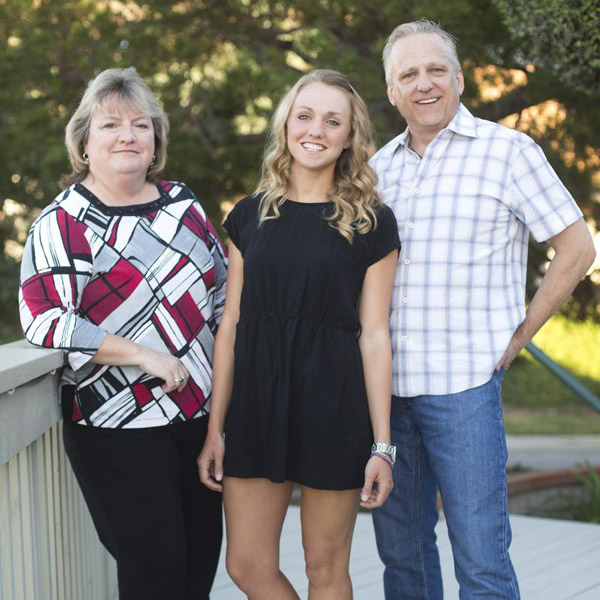From The Orange County Register
Published March 16, 2015
By Deepa Bharta / Staff Writer
 The way Katrina Jewell remembers it, type 1 diabetes sneaked up on her.
The way Katrina Jewell remembers it, type 1 diabetes sneaked up on her.
At age 13, the Anaheim Hills girl was slim, athletic and on a cheer team.
But she had stopped growing and weighed about 65 pounds. She felt hungry all the time and had a thirst that seemed unquenchable. She was so thin her spine was sticking out.
Her mother, Beth, was the one who took her to the doctor. The type 1 diabetes diagnosis came as a shock to the family. Her blood sugar number was a whopping 707. It should have been between 80 and 100.
“My life changed,” Katrina Jewell said. “I had to monitor myself several time a day. I had to take insulin every time I wanted to eat carbs. I had to count every carb that went into my body. Or I could die. This was overwhelming to me.”
Now, nearly 10 years after her diagnosis, Katrina interns with Children’s Hospital of Orange County’s Diabetes Center where she counsels young people who, like her, have been diagnosed with type 1 diabetes.
“It’s been an eye-opening experience for me,” she said. “I sit in on patient meetings and talk to families that are new to the disease. I hope that seeing me will help them see that diabetes is not going to stop them.”
Katrina took on the internship after graduating from UC Santa Cruz with a degree in molecular and cellular biology. Her goal is to become a physician’s assistant for which she needs 1,000 clinical hours. Her time at CHOC’s Diabetes Center will help her reach that target.
“I wanted to become a physician’s assistant because that will give me direct access to the patients, which will help me be hands-on and be the diabetes educator I want to be,” she said. “I want to use my knowledge to help individuals and families that are coping with diabetes.”
Two years after Katrina was diagnosed, her father, Dave Jewell, an avid runner, began raising money at his workplace, Yamaha Corporation of America.
He recruited colleagues and friends and other local businesses to participate in the Southern California Half Marathon and 5K races to raise money for TrialNet, the National Institutes of Health-sponsored diabetes prevention program for which CHOC is one of the largest screening sites. Over the last eight years, the Jewells have raised more than $77,000 for the program.
TrialNet is an international network of researchers looking for ways to prevent, delay and reverse the progression of type 1 diabetes.
When fundraising began for TrialNet, Katrina began to run with her father. Now, she logs about 60 miles a week.
“I found that when I run, I need a lot less insulin,” she said. “When I don’t exercise, I need three times more.” With exercise, Katrina’s body becomes more sensitive to insulin, which means she needs much less of it.
One of the biggest challenges she deals with is the lack of general awareness about type 1 diabetes, Katrina said.
“A lot of people think you get type 1 diabetes because of not eating right or leading an unhealthy life,” she said. “The fact is, type 1 diabetes is an autoimmune disease. No one knows why someone gets it and there’s no cure.”
Type 1 diabetes does not go away with a pill, diet or exercise.
Dr. Mark Daniels who leads the TrialNet team at CHOC, said there is a significant amount of research being done to find medications that can help prevent diabetes.
“We’re also looking at medications that we can give someone as soon as he or she is diagnosed with type 1 diabetes that can reduce the amount of insulin they need to take,” he said. “We hope we will have a cure for type 1 diabetes such as a pill or surgery.”
Daniels said CHOC sees 1,200 children with type 1 diabetes each year.
Among other projects CHOC researchers are hoping to be involved with is development of an “artificial pancreas,” which consists of a pump, a glucose sensor and a computer alogrithm that will make insulin adjustments automatically, acting like a pancreas, Daniels said.
The “bionic pancreas” is still in the research stage and is not commercially available, he said.
“The significance of the Jewell family helping us is great,” he said. “It allows us at CHOC to be a part of cutting-edge research and it’s going to benefit patients on a real-time basis.”
Contact the writer: 714-796-7909 or dbharath@ocregister.com












